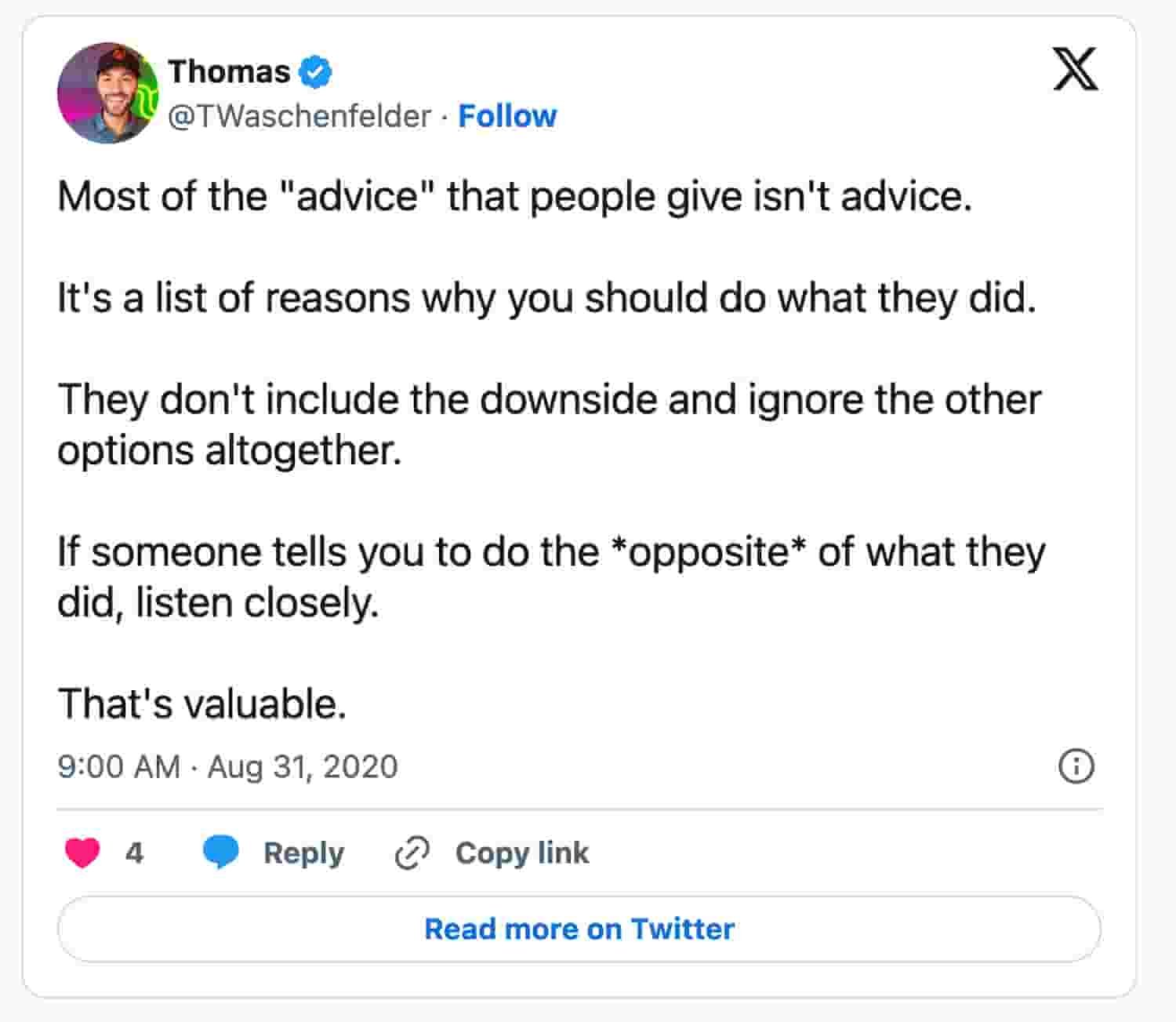The Silver Rule: Why Negative Advice Is Better Than Positive Advice
You probably know the Golden Rule: “Do unto others as you would have them do unto you.” Or, treat others the same way you would like to be treated.
But it’s very difficult to know exactly how you’d like to be treated at all times. That’s what makes the Golden Rule difficult to follow.
Nassim Nicholas Taleb, in his book, Skin in the Game: Hidden Asymmetries in Daily Life, advocates for a different kind of rule - what he calls the Silver Rule.
The Silver Rule is basically the “Negative” Golden Rule. Taleb writes it as follows: “Do not treat others the way you would not like them to treat you.”
Stated another way: if you don’t want “X” done to you, don’t do “X” to someone else. This rule is far more useful - let’s see why.
Negative Advice Is Better For You Than Positive Advice.
The Silver Rule says that it’s better to tell someone what to avoid than to tell them what to do. It’s better to give (and get) negative advice than positive advice. There are a few reasons this is true:
You suffer more from a loss than you enjoy from a proportionate gain.
One component of the human condition is that you suffer more from a loss than you enjoy from a proportionate gain. The annoyance of losing a $10 bill is greater than the satisfaction from finding one. You feel disappointment more deeply than you feel the positive equivalent.
Because of that, your goal should be to avoid the bad, instead of looking for the good. You should avoid doing to other people what you would not want to be done to you.
What’s bad for you is more obvious than what’s good.
Another reason why negative advice is more helpful to you than positive advice is that you instinctually know more definitively what is bad for you than you know what is good.
A punch in the gut? Definitely bad. Drinking coffee? Probably good, but maybe bad. It’s hard to link positive causalities, but much easier to link negative ones.
That makes it easier to avoid bad outcomes than it is to capitalize on the good. Charlie Munger and Warren Buffett have made careers out of doing exactly that. As Munger likes to say:
“It is remarkable how much long-term advantage people like us have gotten by trying to be consistently not stupid, instead of trying to be very intelligent.”
You avoid second and third-order consequences.
With negative advice, you avoid all sorts of second and third-order consequences involved with positive advice. The advice to “eat your broccoli” may be good for the person giving it, but bad for you if you get terrible IBS when you eat it.
Taleb flushes this idea out a bit more when explaining the philosophical and theological notion of Via Negativa:
“In action, it is a recipe for what to avoid, what not to do—subtraction, not addition, works better in domains with multiplicative and unpredictable side effects.”
What’s more unpredictable than your everyday life?
If you give advice, Speak From Experience.
If you think you have a valuable insight to share, try to speak from experience. When you can provide insight into your experience without telling someone else what to do, you’re protecting both yourself and the other person from the possible side effects of positive advice.
And the next time someone starts to give you advice, ask them to tell you what not to do in a specific situation instead of telling you what to do.
You’ll both be better off in the long run.
If You Want More Content Like This, Follow Me On Twitter And Subscribe To My Newsletter:
—
Taleb, Nassim Nicholas. Skin in the Game: Hidden Asymmetries in Daily Life. Random House Publishing Group. Kindle Edition.




